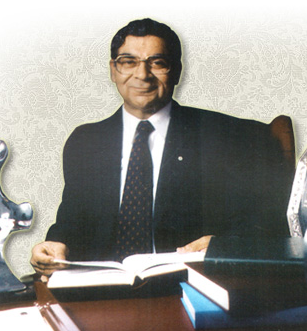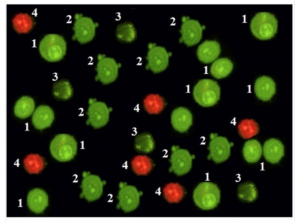
Bharat Aggarwal, a highly cited cancer researcher who retired last year from MD Anderson, has logged two retractions following an investigation into his work, bringing his total to nine.
Aggarwal has threatened to sue us in the past, and told us that MD Anderson has been investigating his work. Earlier this year, Biochemical Pharmacology retracted seven studies of which he is the only common author, noting the “data integrity has become questionable.” Now, he’s earned two more retractions in Molecular Pharmacology, both for “inappropriate” or “unacceptable” image manipulation.
Both of the notices are paywalled (tsk, tsk). Here’s one for “Flavopiridol suppresses tumor necrosis factor-induced activation of activator protein-1, c-Jun N-terminal kinase, p38 mitogen-activated protein kinase (MAPK), p44/p42 MAPK, and Akt, inhibits expression of antiapoptotic gene products, and enhances apoptosis through cytochrome c release and caspase activation in human myeloid cells:” Continue reading Highly cited cancer researcher logs 8th, 9th retractions

 Misconduct by a chemist at a Colorado lab run by the U.S. Geological Survey (USGS) has
Misconduct by a chemist at a Colorado lab run by the U.S. Geological Survey (USGS) has 
 The Leiden University Medical Center (LUMC) has asked a journal to retract two papers after revealing a former employee manipulated data.
The Leiden University Medical Center (LUMC) has asked a journal to retract two papers after revealing a former employee manipulated data.


 A U.S. judge has denied a virology researcher’s third attempt to overturn a seven-year debarment from receiving federal funds, following a 2010 decision by the U.S. Office of Research Integrity.
A U.S. judge has denied a virology researcher’s third attempt to overturn a seven-year debarment from receiving federal funds, following a 2010 decision by the U.S. Office of Research Integrity.